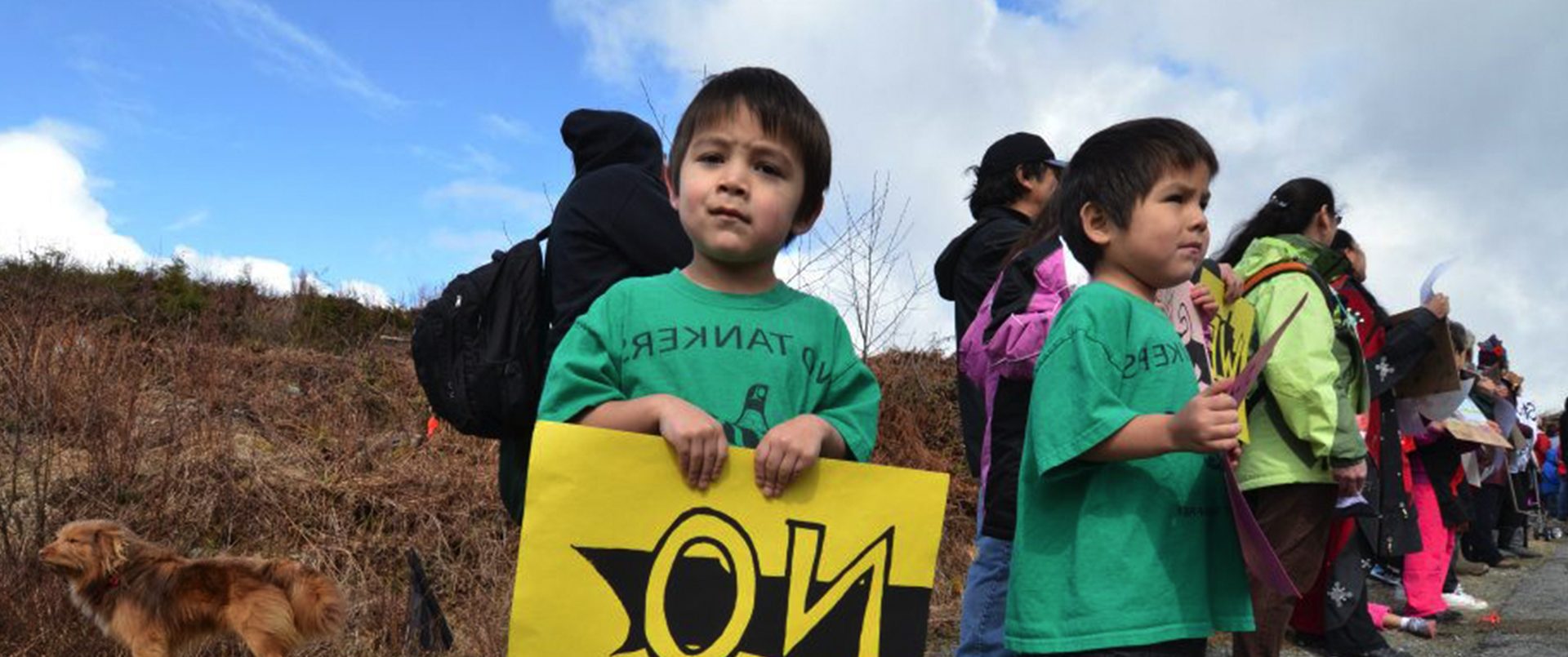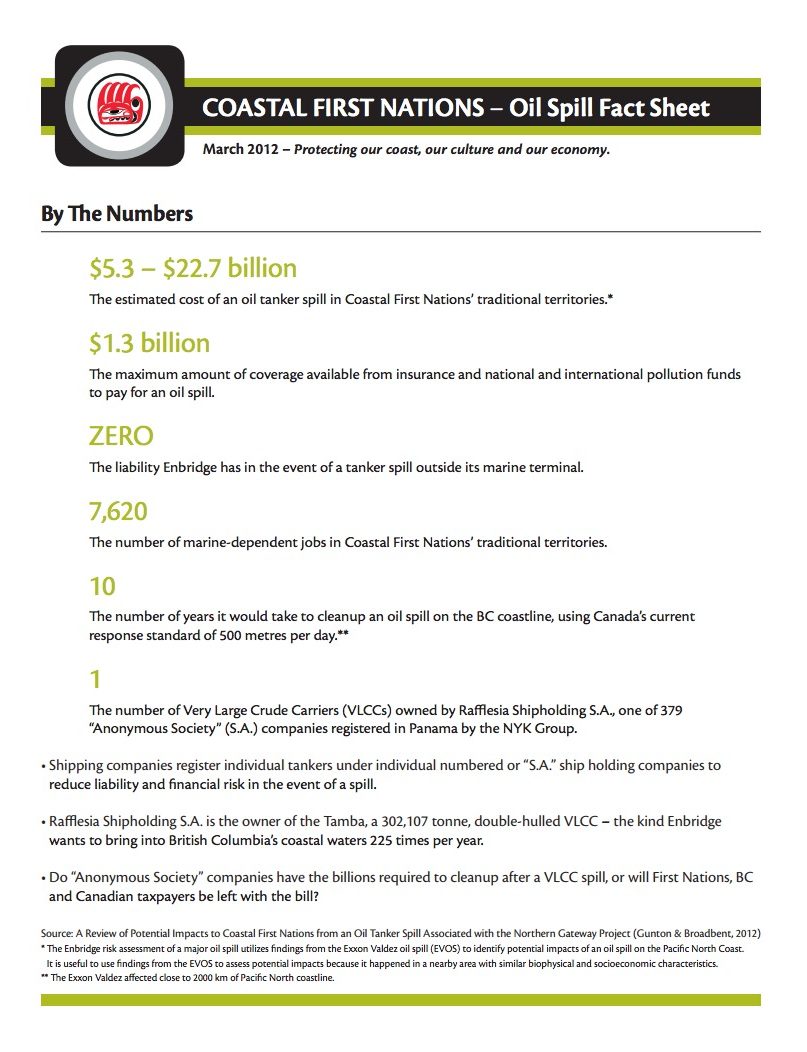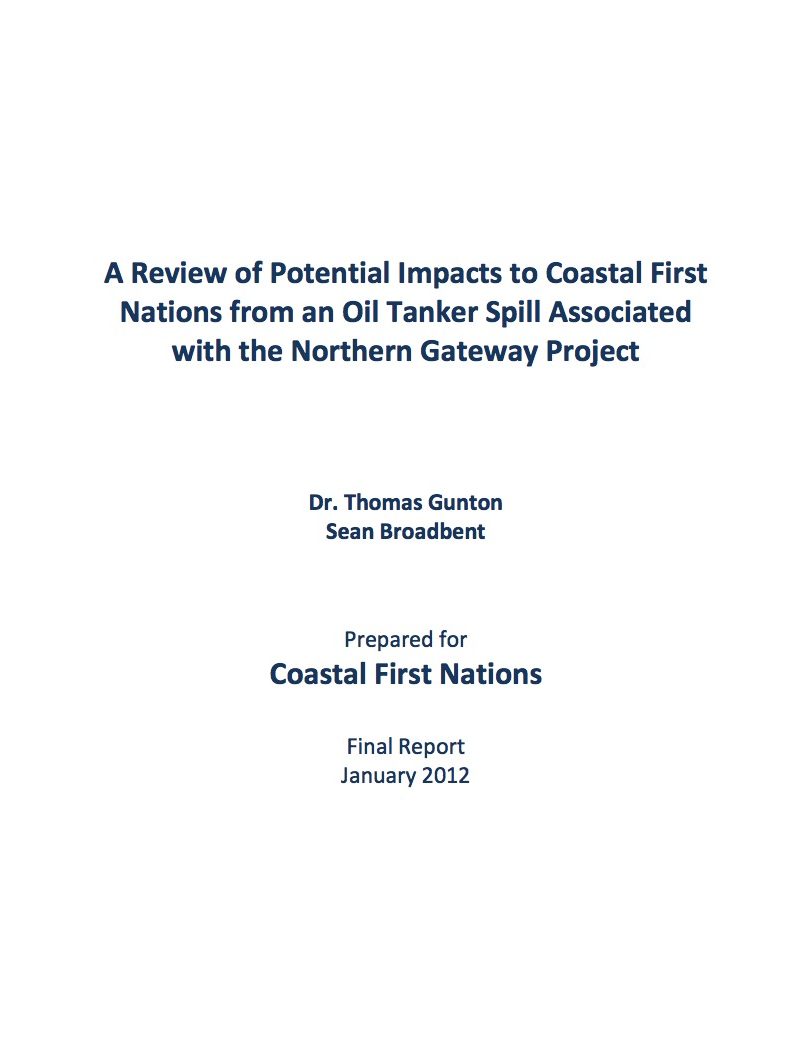Tanker Ban and Death of Northern Gateway Pipeline
Since March 2010, Coastal First Nations have upheld a ban on oil tankers carrying crude oil through our Traditional Territories. The Coastal First Nations Great Bear Initiative has led wide-spread opposition to the Enbridge Northern Gateway Project and called for a moratorium on all oil tanker traffic on the north Pacific coast.
In November 2016, the federal government announced two decisions: Canada quashed the Enbridge Northern Gateway Project and its proposed crude oil pipeline and supertankers, saying “the Great Bear Rainforest is no place for a pipeline”; It also banned all oil tanker traffic through our waters.
This is a double victory for coastal First Nations who depend on a healthy ocean for our food, livelihoods and cultural ways of life. Our communities have stood together in making choices that will safeguard our air, lands, rivers, salmon and communities for the future.



